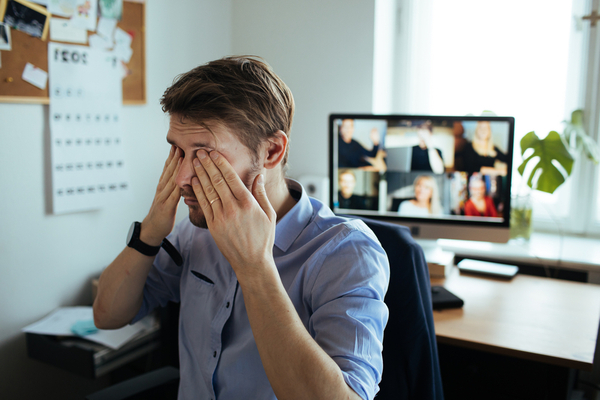Mental Overload, also known as Pandemic or Covid Fatigue, is a real thing (just ask the World Health Organization), leaving people demotivated and exhausted with regular tasks. For example, maybe you’re the kind of person who could stomach, or even enjoy, a 2+ hour movie before the pandemic. But have your feelings changed now?
Unless you’ve been living under a rock since March 2020, Covid will have somehow upended your daily life. “This level of unpredictability has caused people to live with a higher level of agitation, anxiety and worry, which makes it difficult to concentrate and get invested in projects that require our full attention,” says Sabrina Romanoff, a clinical psychologist and professor at Yeshiva University in New York City. “Instead, people are putting blinders on, while they conserve their energy, to superficially engage in more mindless activities or shows to distract them without feeling drained of their mental resources.”
“It is natural to feel this way, particularly because the pandemic is an unnatural event that has lasted much longer than anyone initially thought,” says Rachel Cavallaro, a licensed psychologist with Thriveworks in Boston, Massachusetts. “The increased isolation has created an even greater need for stimulation and connection.” One to two years of this “could significantly reduce your attention capacity,” she added.
“Covid has led to many people experiencing cognitive overload, whereby our brains become short-circuited due to being overwhelmed with information to process,” said Crystal Burwell, director of outpatient services for Newport Healthcare Atlanta, Georgia. “The external stimuli and nature of the environment play a major role in attention spans and building the emotional resilience needed to combat Covid fatigue.”
It’s unclear whether the Covid era has had a quantifiable effect on our attention spans, though experts confirm mental exhaustion is a widespread problem. “Covid has pretty much eaten up my attention span,” said Kathleen Schmidt, publicity director at Skyhorse Publishing. “I can’t get through an entire book unless it’s an audiobook. The prospect of a 2.5 hour movie sounds like torture.”
People are also more easily distracted. “It’s all too easy to look at your phone, browse in a separate window, go run some errands or clean up the house,” Cavallaro said. “These tasks feel more stimulating since they grab your attention versus listening to a lecture, attending a meeting or doing administrative tasks.”
Covid fatigue also affects different age groups differently. “Children and young adults are going to have a harder time paying attention in school, while adults are going to have a harder time completing work tasks as well as household chores, and the elderly may appear to have increased memory issues,” Cavallaro said.
In Russell’s mind, attention spans aren’t something people need to try and “improve.” She says, “Entertainment by definition should be fun and enjoyable. We find that consumers consume entertainment much like they consume food. Some like to nibble, others like to feast, and some like to garnish – which means they do something else while having entertainment in the background.”
If you do want to improve your attention span, Cavallaro recommended “healthy diet, regular exercise, meditation, and proper sleep hygiene.” Burwell suggested “therapeutic techniques such as mindfulness and grounding techniques (to) help centre our mind and body to be fully present in the moment.”
But if hunkering down to watch a 2 1/2 hour movie still floats your boat after 2 years of this pandemic, then by all means, have at it.
—
Photo Credit: Girts Ragelis / Shutterstock.com
